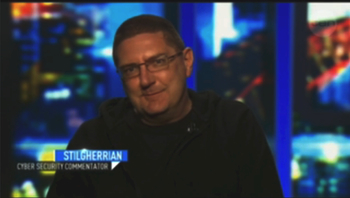 Nothing has appeared here since Weekly Wrap 200 last Sunday — including the update to my guest lecture at UTS from Monday — because my work schedule has been dominated by the Heartbleed internet security bug.
Nothing has appeared here since Weekly Wrap 200 last Sunday — including the update to my guest lecture at UTS from Monday — because my work schedule has been dominated by the Heartbleed internet security bug.
There’s a lot that’ll appear here in the coming three days, and not just the UTS lecture. There’s radio spots that I did with ABC 720 Perth, ABC 783 Alice Springs, 1395 FIVEaa Adelaide, ABC Radio’s The World Today, and ABC 702 Sydney, for starters, plus links to the stories I’ve written on Heartbleed — one for Crikey and four for ZDNet Australia — although clever possums will know that they’re already listed on the media page.
In the background, I’ve also been sketching out ideas for a Pozible crowdfunding campaign or two, continuing from the one I did last year, to resurrect Corrupted Nerds and The 9pm Edict. Stay tuned.
I guess I shouldn’t whinge about Heartbleed killing my schedule. Some people have to do the really hard programming and systems administration work to clean up the mess, not just write and talk about it, and the extra work is heartbleeding revenue straight into my pocket.

 Earlier this morning I spoke about Facebook’s disturbing new “Big Cat” technology on
Earlier this morning I spoke about Facebook’s disturbing new “Big Cat” technology on  It’s been a while since I got to talk directly to The Project presenters, but I did so last night. And I was captioned as a “Cyber Security Commentator”, which is obviously a bit special.
It’s been a while since I got to talk directly to The Project presenters, but I did so last night. And I was captioned as a “Cyber Security Commentator”, which is obviously a bit special.